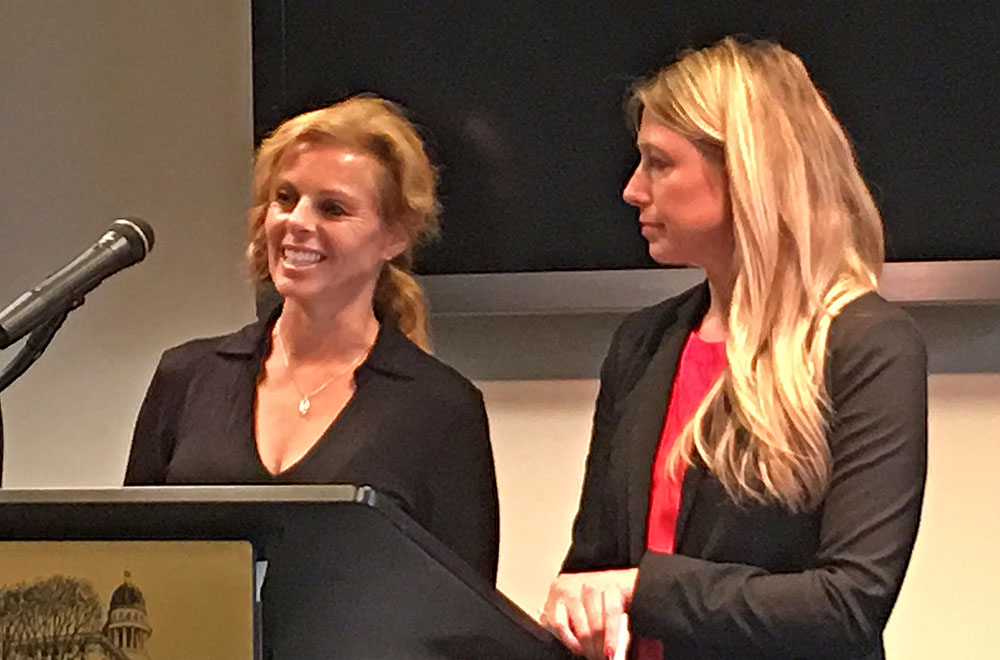AUGUSTA — Outgoing Speaker of the House Mark Eves on Wednesday called on Gov. Paul LePage to release voter-approved bond money earmarked for senior housing and offered other ideas for improving the fortunes of Maine’s oldest residents.
Eves, D-North Berwick, unveiled a list of ideas at a news conference Wednesday, including some addressed in previous legislation and others gathered during an 11-stop statewide listening tour he and other members of the Legislature’s Caucus on Aging conducted during the summer and fall. Among them was a program in Harpswell that helps older and low-income residents with home upgrades, weatherization and other needs.
But topping the list is pushing LePage to release $15 million in bonds to finance construction of affordable housing for the elderly. Eves said as many as 10,000 Maine seniors are on waiting lists for housing, and LePage’s reluctance to release the bonds is unjustified.
“It’s no small thing when the voters say ‘yes’ by 70 percent,” Eves said. “It clearly needs to happen.”
LePage has repeatedly said he believes approving the bonds would make one or two developers millionaires, although he has offered no specifics to support that claim.
A spokeswoman for the governor said in an email Wednesday that LePage has supported creating housing for seniors through existing state programs that have the authority to raise construction funding.
“Currently, MaineHousing is creating 250 to 300 new apartments every year. About half of them are for seniors and the rest are for other needy Mainers. They are trying to balance competing needs,” Adrienne Bennett said.
A message to LePage’s communications director and press secretary Wednesday was not immediately returned.
Other recommendations in Eves’ report include increasing investment in public transportation, increasing financial support for in-home support services and providing more property tax relief for low- and middle-income seniors.
Bob Bauman, a volunteer with the Harpswell Aging At Home program, said the nonprofit renovated an elderly woman’s home to eliminate mold that was causing her health problems. The project was accomplished through $1,300 in materials and volunteer labor, Bauman said.
“This is a vivid example of how a community, by investing a small amount of money in home repairs, can save a large amount of money in health care costs and can even save a life,” Bauman said.
Joining Eves were incoming House Majority Leader Rep. Erin Herbig, D-Belfast, and Sen. Amy Volk, R-Scarborough.
Volk and Herbig are co-chairs of the Legislature’s Labor Commerce Research and Economic Development Committee, and both are members of the Legislature’s bipartisan Caucus on Aging. Eves said their relationship and committee experience would build bipartisan coalitions in a Legislature that is closely divided between Republicans and Democrats.
“We got into this because we want things to be better for people who live here in Maine,” Herbig said. “Sen. Volk and I have a history of working together on some pretty tough issues. And I think Maine people, when you look at the (recent) election results, they want us to work together more.”
Volk said that she would try to find out what LePage’s concerns are regarding the housing bonds and whether they can be addressed.. She said that under the state constitution, LePage had up to five years to make a decision on releasing the bonds, which were approved in November 2015.
“I have sat down and met with him on this issue in the past. I would be happy to sit down and meet with him again and try to get those issues addressed so that he can make that decision himself and not have his hand forced by the Legislature,” Volk said. “I really don’t believe it’s our job, but I also don’t have a problem calling on him to get that work done and I think that the Maine people expect it.”
Eves said releasing the bonds could result in new housing units within a year because several projects are “shovel ready.”
Eves conducted a similar listening tour in 2014 and 2015 aimed at finding ways to help seniors stay in their homes longer and it resulted in 18 new laws or law changes, according to his office.
Maine is the oldest state based on median age – 43.5 years – and the second-oldest based on the proportion of people age 65 and older –17 percent, according to the U.S. Census. Florida is No. 1 with 18.2 percent.
Maine also has the highest proportion of baby boomers – 29 percent of its 1.3 million residents were born in the period from 1946 to 1964. By 2030, more than 25 percent of Mainers will be 65 or older.
A 2014 Portland Press Herald/Maine Sunday Telegram analysis series, “The Challenge of Our Age,” documented existing and growing shortages in senior housing, home care, long-term care, transportation and other areas that threaten to cripple the state economically and socially.
Scott Thistle can be contacted at:
sthistle@pressherald.com
Send questions/comments to the editors.






